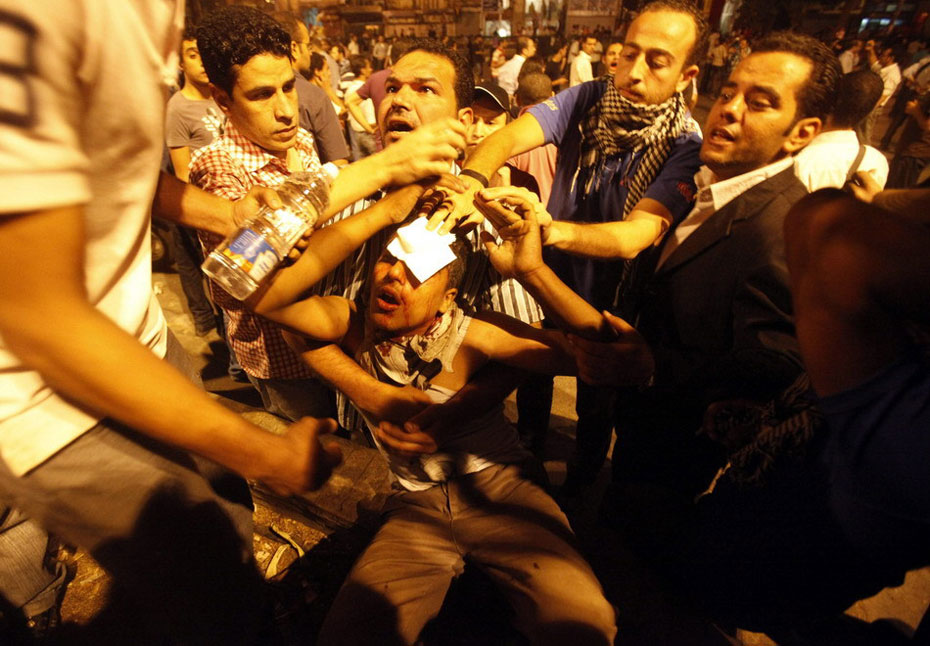600 injured in Cairo clashes between police, protesters
 0 Comment(s)
0 Comment(s) Print
Print E-mail
China.org.cn, June 29, 2011
E-mail
China.org.cn, June 29, 2011
|
Egyptians carry a young man who was injured during clashes between protesters and police forces in Tahrir Square, central Cairo, Egypt, June 29 of 2011. |
Among the injured, 75 were sent to hospitals while the rest were treated on the spot by aid teams, a Health Ministry official was quoted as saying.
In February, over 840 people killed in the uprising that led to Hosni Mubarak's overthrow. Some of these familes had gathered in Cairo on Tuesday to honour those killed.
Fierce clashes occurred late Tuesday night between Egyptian security forces and young protestors in the Tahrir Square in central Cairo.
Hundreds of protesters threw stones and firebombs at riot police while the clouds of tear gas were billowing in the square to disperse them.
The situation has been contained Wednesday morning and anti-riot police were deployed on securing the surroundings of Tahrir Square and the nearby interior ministry building.
Eyewitnesses said that the involvement of a group of people loyal to former president Mubarak was the main reason behind the riot that was ignited Tuesday night when they disrupted a gathering in a theater near the square where families of those killed in the mass protests that ousted Hosni Mubarak were honoring the victims.
Some protesters chanted slogans demanding Mohamed Hussein Tantawi, head of the Supreme Council of the Armed Forces (SCAF) now ruling Egypt, to step down.
The security forces arrested at least nine thugs, and Interior Minister Mansour Essawi said police forces are exercising wisdom and self-restraint in dealing with current events at Tahrir Square.
The SCAF on Wednesday warned Egyptians to act against those committing the regrettable incidents, stressing that the incidents destabilize Egypt's security and stability with well-organized schemes.
The army also urged citizens to abort the scheme to protect the country's safety and security.
Some pro-democracy activists claimed remnants of the disbanded former ruling National Democratic Party (NDP) plotted the riot after the Administrative Court ordered Tuesday to dissolve all 1, 750 local councils across the nation.
The court ruled that these councils were the tools of the former regime to serve the former regime's interest, and they should no longer be in function after the former constitution was annulled by the army.
Egyptian people are also angry over the slow pace of trial of the former interior minister Habib el-Adli, who was held accountable for ordering the killing of unarmed protesters during the 18-day protests, in which at least 800 people were killed and more than 6,000 were injured.
Clashes erupted between hundreds of demonstrators and security forces outside a criminal court on Sunday after the trial of el- Adli was adjourned again till July 25.





Go to Forum >>0 Comment(s)